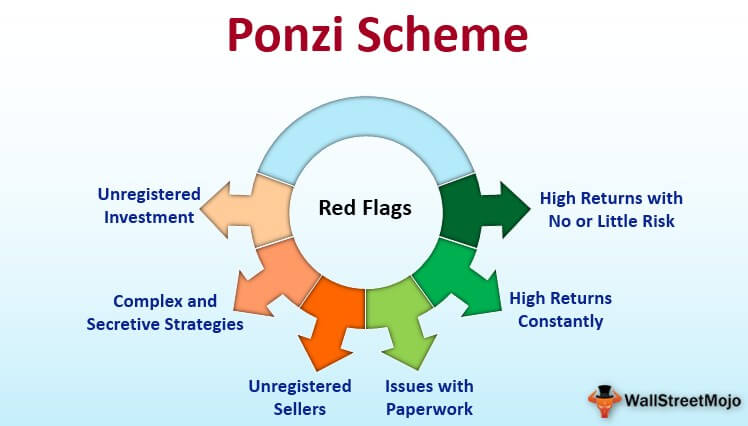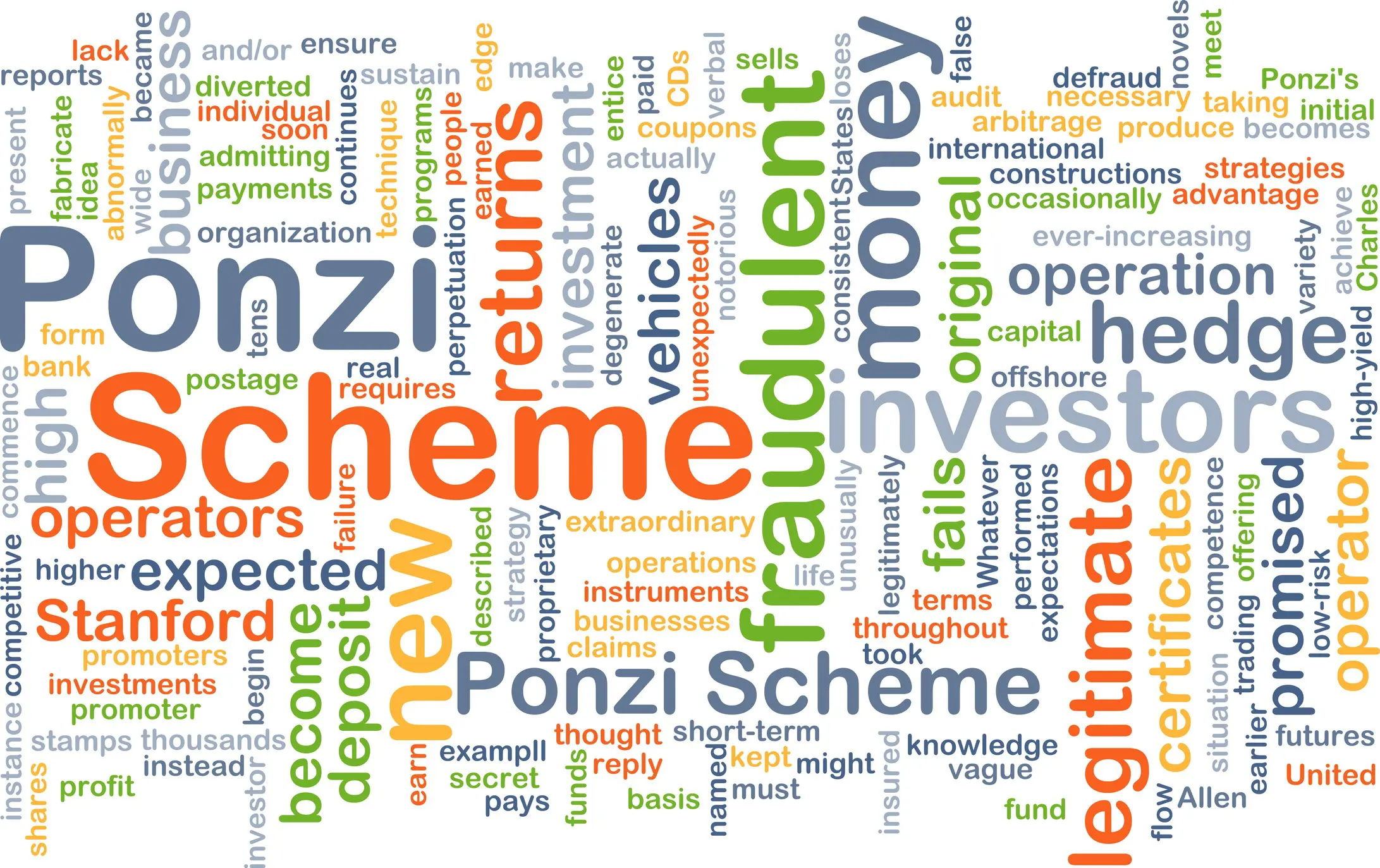A ponzi scheme is thought about a deceptive financial investment program. It involves using payments gathered from brand-new financiers to settle the earlier investors. The organizers of Ponzi schemes normally guarantee to invest the cash they gather to produce supernormal revenues with little to no danger. Nevertheless https://medium.com/@tylerttysdal, in the real sense, the fraudsters do not actually prepare to invest the cash.
As soon as the brand-new entrants invest, the cash is gathered and utilized to pay the initial financiers as "returns."Nevertheless, a Ponzi scheme is not the exact same as a pyramid scheme. With a Ponzi scheme, investors are made to believe that they are earning returns from their investments. On the other hand, participants in a pyramid scheme know that the only way they can make profits is by recruiting more individuals to the scheme. https://www.instagram.com/tyler_tysdal/
Red Flags of Ponzi Schemes, A lot of Ponzi plans come with some typical attributes such as:1. Guarantee of high returns with very little danger, In the real world, every financial investment one makes brings with it some degree of risk. In reality, financial investments that provide high returns usually carry more risk. So, if somebody offers a financial investment with high returns and few threats, it is likely to be a too-good-to-be-true offer.
Ponzi Scheme Horse Racing
2. Overly consistent returns, Investments experience variations all the time. For example, if one invests in the shares of a given business, there are times when the share cost will increase, and other times it will decrease. That stated, financiers must constantly be skeptical of investments that generate high returns consistently regardless of the changing market conditions.
Unregistered financial investments, Prior to hurrying to purchase a scheme, it is very important to verify whether the financial investment company is signed up with U.S. Securities and Exchange Commission (SEC)Securities and Exchange Commission (SEC) or state regulators. If it's registered, then an investor can access details concerning the company to determine whether it's legitimate.
Unlicensed sellers, According to federal and state law, one should have a specific license or be registered with a regulating body. Many Ponzi plans handle unlicensed people and companies. 5. Deceptive, sophisticated methods, One should prevent investments that consist of treatments that are too complex to understand. History of the Ponzi Scheme, The scheme got its name from one Charles Ponzi, a fraudster who fooled countless investors in 1919.
Ponzi Scheme Defense
Back then, the postal service provided worldwide reply vouchers, which allowed a sender to pre-purchase postage and incorporate it in their correspondence. The recipient would then exchange the coupon for a top priority airmail postage stamp at their home post workplace. Due to the fluctuations in postage rates, it wasn't unusual to discover that stamps were pricier in one nation than another.
He exchanged the discount coupons for stamps, which were more expensive than what the coupon was originally purchased for. The stamps were then cost a greater price to make a profit. This type of trade is known as arbitrage, and it's not illegal. However, at some point, Ponzi ended up being greedy.
Given his success in the postage stamp scheme, no one doubted his intents. Sadly, Ponzi never truly invested the cash, he simply plowed it back into the scheme by settling some of the financiers. The scheme went on until 1920 when the Securities Exchange Company was examined. How to Safeguard Yourself from Ponzi Schemes, In the exact same method that a financier looks into a company whose stock he's about to purchase, an individual should examine anybody who assists him manage his financial resources.
Ponzi Scheme Broward

Likewise, before buying any scheme, one should request the company's financial records to validate whether they are legit. Key Takeaways, A Ponzi scheme is merely an unlawful financial investment. Named after Charles Ponzi, who was a scammer in the 1920s, the scheme assures consistent and high returns, yet apparently with very little threat.
This kind of fraud is called after its creator, Charles Ponzi of Boston, Massachusetts. In the early 1900s, Ponzi released a scheme that guaranteed investors a 50 percent return on their investment in postal coupons. Although he was able to pay his initial backers, the scheme dissolved when he was unable to pay later financiers.

What Is a Ponzi Scheme? A Ponzi scheme is a deceptive investing fraud promising high rates of return with little risk to investors. A Ponzi scheme is a deceitful investing rip-off which produces returns for earlier financiers with money drawn from later investors. This resembles a pyramid scheme because both are based on using brand-new investors' funds to pay the earlier backers.
Charges For Ponzi Scheme
When this circulation runs out, the scheme breaks down. Origins of the Ponzi Scheme The term "Ponzi Scheme" was coined after a swindler named Charles Ponzi in 1920. However, the first taped instances of this sort of financial investment rip-off can be traced back to the mid-to-late 1800s, and were managed by Adele Spitzeder in Germany and Sarah Howe in the United States.
Charles Ponzi's initial scheme in 1919 was focused on the United States Postal Service. The postal service, at that time, had industrialized global reply vouchers that enabled a sender to pre-purchase postage and include it in their correspondence. The receiver would take the coupon to a regional post office and exchange it for the priority airmail postage stamps needed to send a reply.
The scheme lasted till August of 1920 when The Boston Post began examining the Securities Exchange Company. As an outcome of the newspaper's investigation, Ponzi was jailed by federal authorities on August 12, 1920, and charged with numerous counts of mail fraud. Ponzi Scheme Red Flags The principle of the Ponzi scheme did not end in 1920.
Ponzi Scheme Polka King
Tyler T. Reports on on The Web
Kind of monetary scams 1920 picture of Charles Ponzi, the namesake of the scheme, while still working as a business person in his workplace in Boston A Ponzi scheme (, Italian:) is a kind of scams that entices financiers and pays revenues to earlier investors with funds from more current investors.
No comments:
Post a Comment